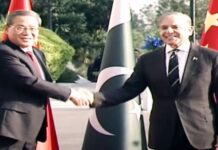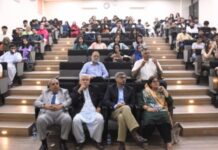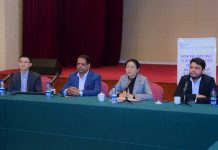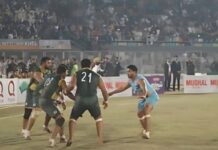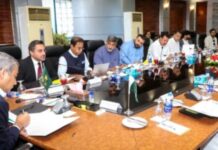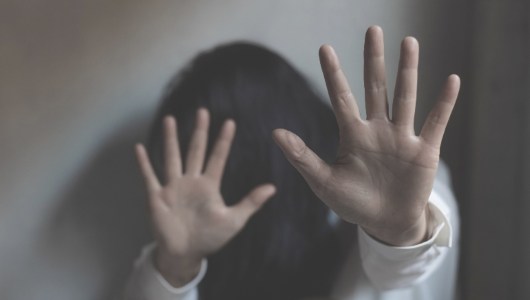ISLAMABAD, Nov 7 (NNI) : Pakistan is facing a pervasive and deeply entrenched issue that demands urgent attention and concerted efforts from all sectors of society – gender-based violence against women.
The gravity of this issue cannot be overstated, and it requires a multifaceted approach to effectively address the root causes and create a society where women can live free from fear and violence.
The challenges faced by women in Pakistan in accessing justice are profound. A range of socio-cultural, economic, and systemic barriers obstruct their path to seeking legal recourse and protection. These challenges include limited awareness of legal rights, fear of retaliation, societal stigma, corruption within the legal system, and inadequate representation in positions of power. Additionally, the deeply ingrained patriarchal norms and discriminatory cultural practices further perpetuate an environment where women remain vulnerable to violence.
To combat this issue, strengthening legal and governmental institutions is paramount. The legal framework must be bolstered to ensure swift and impartial justice for victims of gender-based violence. This includes enhancing legislation, ensuring its strict enforcement, and providing accessible legal aid services to survivors. Police training and sensitization programs are essential to improve responses to cases of violence, fostering an environment where survivors feel safe and supported. The status quo of police harassment, mismanagement of cases, delays in the due process of law, and delayed access to justice must be combatted, through superior accountability, and the creation of secure and expedited channels for these women to seek justice and protection.
Moreover, NGOs play a pivotal role in empowering women and advocating for their rights. Collaborative efforts between the government, NGOs, and civil society are crucial to amplify the impact of interventions. NGOs can help bridge the gaps in service delivery, raise awareness, provide counselling and shelter, and act as a voice for the marginalized. Rather than alienating these NGOs to the sidelines they should be consulted and used in treating and helping survivors and collborating on future legislation and police reform.
To address the underlying societal barriers perpetuating gender-based violence, comprehensive educational campaigns are vital. These campaigns should challenge stereotypes, promote gender equality, and educate communities about consent, respect, and the legal consequences of violence. Educational institutions must play a fundamental role in promoting gender-sensitive curricula to foster a more inclusive and equitable society from an early age.
Furthermore, the economic empowerment of women is a linchpin in this battle. Access to education, skill development programs, and job opportunities can help break the cycle of dependence, providing women with the means to escape abusive situations and attain financial independence.
Lastly, fostering a culture of accountability and actively engaging men and boys in the fight against gender-based violence is essential. Men can be powerful allies in this struggle, challenging toxic masculinity and promoting healthy relationships based on equality and respect.
In conclusion, combating gender-based violence against women in Pakistan necessitates a united and sustained effort. Strengthening legal and governmental institutions, promoting education and economic empowerment, eradicating societal barriers, and engaging all segments of society, particularly men, are crucial steps toward a safer and more equitable future for women in Pakistan. Let us stand together and work tirelessly to create a society where every woman can live a life free from violence and fear. NNI








